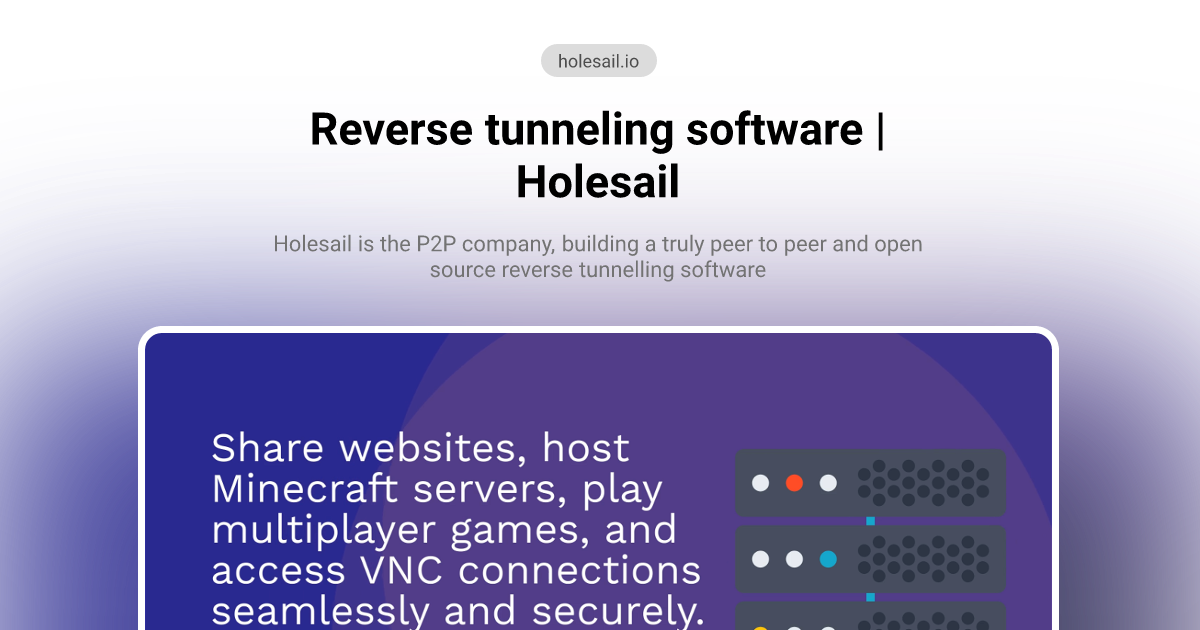If you can do a P2P transaction like that, you need either a central server or a blockchain or equivalent to prevent double-spends. There is no other way. Satoshi’s innovation for Bitcoin was developing a system (blockchain) that can do this without a central server.
on nostr here)
- 60 Posts
- 536 Comments

 2·8 hours ago
2·8 hours agoand technology which they can’t censor or control (lemmy/mastodon/ap, nostr, bluesky, freenet, hyphanet, matrix, tor, i2p, etc)
Well, yes, exactly. That’s the problem. There have been innumerable innovations and improvements in the field over those 15 years, but Bitcoin ossified early and so it’s got none of them.
Except it’s got L2s, it’s got more smart contract abilties, it’s adding zk rollups, etc. It’s not like it hasn’t improved over that timespan. The stability of the core protocol and widespread consensus required to upgrade it (and the slow speed at which this occurs) is a benefit for something that is meant to be money. It’s maybe less beneficial for the world’s most cutting edge smart contract platform, for example.
You’ve got a very inaccurate and skewed view of this. Most significantly, it’s not “proof of ownership,” it’s “proof of stake.” Proof of ownership and proof of stake are distinct technologies that operate in different manners. Ethereum is not proof of ownership.
They call it proof of stake, but it’s proof of ownership. It’s proving you own coins. That’s it. Edit: I think you thought I was talking about proof of authority?
There is a magical threshold at 66%, if you’ve got more than that you can prevent “finality” from happening which will in turn cause some disruption to the chain. But most significantly, it doesn’t prevent blocks from continuing to be processed and doesn’t allow stakers to forge blocks. It’s a highly theoretical attack since no stakers or staking pools are anywhere remotely close to that sort of dominance, and even if they did do that there’d still be mechanisms by which they could be slashed.
I will need to look into this more so thank you for bringing this to my attention. Centralization of nodes renders much of this inconsequential imo but still worth looking into for my own knowledge.
Lightning has been an entirely predictable disappointment. The problem is that Bitcoin was not designed to support something like Lightning
You’re right, it was not designed to support an idea that didn’t exist when it was designed. But upgrades to improve lightning have been proposed and made it into protocol and more updates (convenants) are coming down the pipe. Lightning works, it works really well, I use it on a daily basis, the network continues to grow. It works for small transactions and large ones. It takes under a second. Cash app supports it, Coinbase added support for it this year. It’s as decentralized as base chain is, unlike many of Eth’s L2s. The only caveat to lightning for self-custody wallets is solving the “inbound liquidity” problem for onboarding new issues, which is an annoying UX thing but not actually a huge problem imo. Nonetheless, convenants will help solve this and there are other proposals (Ark and Fedimint) which solve this problem in different ways with different trade-offs. It has come a long ways in the past 5 years, I tried it when it first came out and it was a major pain to use, almost all of those pain points have been solved.
Ironically there’s thirty times more Bitcoin being transacted on the Ethereum network in the form of WBTC than there is Bitcoin being transacted in Lightning.
This is a good point. This WBTC is being used for DeFi etc, it’s not being used as a currency for transactions. And that’s fine, maybe that’s Eth’s place, certainly there isn’t much interest in using BTCs main chain for more complex smart contracts due to concern about bloat. There are proposals (BitVM etc) and some working implementations with “shared security” from main chain with the smart contracts being hosted in some sidechain/L2/etc. But it’s a dizzying array, we’ll see how that shakes out. I don’t know about Eth’s long-term future as a decentralized platform when centralization continues to increase and a conspiracy, hack, or government pressure on Hetzner and Amazon could impact over half the nodes on the network.
Nobody’s gonna make you, unlike a CBDC.
Bitcoin’s protocol has not meaningfully changed in 15 years. In terms of stability, in the crypto space, you literally cannot beat that. It will continue doing its thing so long as a few computers in the world still run the protocol. Those In those 15 years it has never been hacked, never had an hour of down time, took no bank holidays, and has fought off competition from other cryptocurrencies and attempted bans from nation states and world powers. And the supply has remained capped at 21 million coins as promised.
Ethereum is centralized AF. The majority of the supply was sold during the pre-mine, and now that “proof of ownership” runs the network, the risk of a 51% attack is significant. And in PoS systems, you get centralization of wealth over time since you are printing new currency and handing it over to people simply for already owning some, the “work” they have to do to stake is minimal. Unlike in PoW systems, once a 51% attack happens, it can happen indefinitely there there is no imposed cost after the start of the attack. Bitcoin has no pre-mine and has been issued fairly and transparently. The majority of Eth’s nodes are hosted in one of like three corporate datacenters because the hardware required to run a full node has gotten ridiculous. You can say it’s “secure enough” or “decentralized enough”, but not that it’s “more secure” or “more decentralized” than Bitcoin, because it simply isn’t. Their L2s are an absolute mess, some of them are incredibly centralized, Polygon last I checked had 15 nodes controlling the entire network. Meanwhile, you can run a full Bitcoin node on a laptop from 10 years ago and a lightning node on an Android phone. All while still being able to settle a transaction in under a second for a penny in fees with lightning.
Once you start to look at all these coins aside from Bitcoin, all of them, of the ones that aren’t outright scams, have traded decentralization (and therefore security) for transaction speed. Now that Bitcoin lightning is out and mature, transaction speed and chain capacity is no longer the limiting factor. Those other coins have no reason to exist.
Monero is cool, its main pitch is privacy. Bitcoin’s privacy continues to get better, I expect that trend to continue. Bitcoin has a conference like every month, there is a massive pool of dev talent and funding. Lightning was released 5+ years ago, Monero doesn’t even have an L2 and without an L2 it cannot scale, and there’s not even an L2 in the developer roadmap. You can’t put everything on chain forever, and the bigger the chain gets, the more centralized it becomes, period. With no L2, transactions are slow and fees will increase as blockspace competition increases. Lightning can make transactions in under a second for pennies in fees since fees are not tied directly to blockspace.
Stablecoins are the worst of crypto and central banking combined.
- They are centralized, even more centralized than central banks since they are run by a single company not an board appointed by an elected government
- They can rug you at any time
- They only have value because they are “pegged” to a certain currency and the “backing” must exist to maintain that peg.
- Their source of the backing is often “trust me bro”
- Even if the backing was solid, market shocks and other problems can reduce the value of that backing, leading to them being insolvent and the stablecoin losing its value. And guess what, it wasn’t insured!
- They are often poorly regulated or unregulated entirely, so you have no reason to trust their claims and probably can’t seek any real remedy if they are lies
- They are, at best, pegging their value to a currency which is designed to lose 2-3% of its value per year due to inflation
Several of them have already collapsed spectacularly. More will in time. Avoid stablecoins.

 2·10 hours ago
2·10 hours ago
Can you imagine, if we gave people rights?! Like free speech? Or the right to not have their house raided by the government without cause? My god they’d probably abuse those too! We should take them all away just to be safe :p
Please show me the crypto that just has the stability needed to be used as day-to-day currency
Bitcoin is already more stable than most national currencies and gets past the issue where you have to trust a central bank to correctly regulate the production of currency. Ask anybody in Argentina, Turkey, or Zimbabwe how much they trust their national currency. You can use Bitcoin as an everyday currency without holding onto it, plenty of people do this, particularly since it’s simply better for international transactions than many alternatives. Bitcoin gets more stable with time as more people use it.
All currencies experience volatility. People in some countries are very lucky to have a “stable” currency to use. But due to its inflationary nature, currencies like the EUR and USD are designed to lose value over time. 2-3% per year in good years. How had the purchasing power of that currency held up in recent years? Because Bitcoin has held up pretty well. Volatility has many sources, not all of which can be controlled. Bitcoin fixes the total supply in circulation which helps control at least one of those variables. If I have to pick between a currency that is guaranteed to lose value and a currency which may gain or lose value, the choice is pretty clear to me.
Not even accounting for ease of use, wide adoption etc., which none of them have,
Bitcoin’s user base, transaction volume, total market cap, number of full nodes etc, on average trend have increased or improved year after year for 15 years. You can send money to anybody on planet earth with a cell phone and a halfway reliable internet connection in under a second for pennies in fees. And it’s as easy to use as Venmo. The dollar can’t do that, it needs a crazy complex series of international agreements and banks to make happen and it’s expensive and slow. Nobody’s making people use Bitcoin, in fact, there are often some hurdles to doing so, but they choose to because they see some value in doing so. But who knows, maybe on year 16 you’ll finally be right and people will finally realize it’s useless and stop using it!
If only there was some other technology that came along that could :(

 11·12 hours ago
11·12 hours agoYour other points aren’t really valid if you ever want to convert Bitcoin to something that isn’t Bitcoin
A. I don’t, I’d rather use Bitcoin for everything. Year after year, for fifteen years, that has gotten easier as the network has continued to grow and exchange rate stability has increased.
B. Then it would equally apply to Monero or any other cryptocurrency
Bitcoin lightning changes Bitcoin’s whole privacy situation. Lightning transactions don’t go on chain and confirm in under a second for pennies in fees.
so things like having control of your money, needing ID, and trusting centralized entities (sure, exchanges plural) are a huge part of Bitcoin.
I believe you mean a huge part of the existing banking system and markets. None of that is Bitcoin, Bitcoin can operate just fine without any of it.
CBDCs are coming whether you like it or not and a GNU Taler based payment system is currently our best mitigation strategy against them.
The best mitigation strategy is to refuse to use them and to point out when systems, like Taler, are actively working to further their introduction of use. Using your national currency is mandatory to pay taxes, it’s not mandatory for anything else in most countries. We have the option to opt out, just like we do with every other privacy-attacking technology. Assuming it’s inevitable is how they win.
You people realize that most crypto is even less private? Every transaction ever can be viewed by everyone, forever, by design.
There’s some truth to this but it’s also not really the case.
- Each address is pseudononymous even in original Bitcoin.
- Bitcoin lightning transactions are completely opaque to the network, they are never on-chain. At this point, there are vastly more transactions on lightning than on-chain. They confirm instantly and are known only to your node, the receiver’s wallet, and intermediary nodes (if any). Lightning inherits security from the main chain while giving you sub-second transaction confirmation times.
- Monero exists, coinjoin (Bitcoin) exist, changing addresses and having multiple wallets exists, liquidity swaps exist. The chain analysis game is getting harder and more complex every year.
tbh this should be pinned

 13·1 day ago
13·1 day agoBitcoin solved the “move money from A to B securely, internationally, quickly” problem 15 years ago. Taler strikes me in the most generous terms as a new attempt as an unimaginative effort to re-envision the banking system that existed before that watershed moment. We have instant, international settlement, we have that technology, it’s here, it’s mature, it works, it continues to get better, it has a market cap higher than Sweden’s GDP, and the average long-term trend has been growth no matter what way you slice it. It’s already more widely used and reliable than most national currencies. And it solves the delivery problem.
Taler is explicitly positioning itself as a better international payment standard to prevent central bank digital currencies from taking that role
From the Taler FAQ:
The exchange would be operated by a bank or in cooperation with a bank, and that bank would hold the funds in escrow respectively on an internal settlement account. Note that this bank could be a regular bank or a central bank for a central bank digital currency. Irrespective of this, the bank would fall under the relevant financial services regulations, which is one reason why consumers can rely on the conversion of Taler coins into normal bank money.
That doesn’t sound like opposing a CBDC to me, it sounds like explicitly building infrastructure for its existence. To review, Taler is
- Money I don’t control (held by another entity) of a money supply I don’t control (can be printed at will by government)
- That can’t be used internationally
- That is funded/sponsored by the EU, which wants to push a CBDC
- That has built in support for the concept of money expiration

 12·1 day ago
12·1 day agoYou ever wonder why GNU Taler for some reason seems to be everywhere? Seems to have like advertising money to be everywhere, unlike basically every other GNU project? Because it’s a backdoor to a central bank digital currency (CBDC) which will be one of the greatest threats to personal liberty and freedom in our lifetime. That’s why you’ll see “Funded by the EU” and a host of banks listed on their funders page. You know, the same EU that wants chat control.
Money you can only spend certain places? A CBDC can do that! Money that expires if you don’t spend it fast enough? A CBDC can do that! Money that can disappear if you decide to be a dissident? A CBDC can do that too! But don’t take my word for it, ask Taler’s FAQ:
Taler e-money is issued with a validity period. One month before the expiration date, you wallet should automatically exchange any digital cash that is about to expire for new digital cash with an extended validity period. However, if your wallet is offline for an extended period of time, it may be unable to do so. Ensure your wallet is regularly online to avoid losing money due to expiration!
We believe the European Electronic Money Directive provides part of the regulatory framework a Taler exchange with coins denominated in Euros would have to follow.
Oh, and it doesn’t work for international transfers either. And it’s going above and beyond to make sure you’re only “private” under certain conditions:
As a payment system must comply with local laws in order to operate legally, GNU Taler must be designed to comply with these requirements. GNU Taler must provide an audit trail for investigators operating under the law. Furthermore, we consider levying of taxes as beneficial to society, and fair taxation requires income transparency. Thus, GNU Taler must enable authorities to track income.
Weird. I didn’t see anything in the Bitcoin source code about that, but apparently Taler thinks it’s their moral responsibility to make sure the authorities have total financial surveillance over their subjects. Taler, in this description, offers less privacy than cash or even a typical bank account. And it gets worse, even small transactions between friends are monitored:
Taler supports push and pull payments between wallets (also known as peer-to-peer payments). While the payment appears to be directly between wallets, technically the operation is intermediated by the payment service provider which will typically be legally required to identify the recipient of the funds before allowing the transaction to complete.
How about, no? How about me paying 50 to a guy for fixing my bike doesn’t need to be intermediaried and KYCed? How about it’s none of the government’s business how I split the bill at dinner with friends? This level of surveillance is madness.
And their FAQ deliberately spreads FUD about Bitcoin. From their FAQ
It would be possible, however, to withdraw coins denominated in Bitcoin into a Taler wallet (with an appropriate exchange), which would give some benefits over plain Bitcoin, such as instant confirmation times.
Wrong. Fud. Bitcoin lightning offers instant confirmation times, fully settled, instant confirmation times. Taler isn’t self-custody. Putting Bitcoin in a taler wallet means trusting Taler and co not to rug you, no thanks. Taler isn’t international, Taler requires KYC to use, it’s worse than cash. Unlike Taler, your Bitcoin can’t be programmed by the government to “expire” if you don’t use your public assistance or wages in time. We all have to do our part to keep the economy going!
GNU Taler seems like the final pleas of a desperate soon-to-be-ex, “I’ll stop, I promise! I’ll do better this time, I’ll even give you some privacy! Just don’t leave!”. But it’s not about the privacy, is it? Really? It’s about the lack of trust, the lack of sovereignty. People have lost trust in governing institutions, they have seen the value of their currency inflated away no matter which party is in charge, they have seen massive privacy violations again and again, they have seen the slow but steady creep of authoritarianism and state control over our lives, they have had to fight EU chat control year after year, and they are opting out of these systems through decentralized, trustless alternatives. The beauty of Taler, of course, from the perspective of the state, is that it enables these system to provide us with “privacy” while still maintaining total state control and centralization. Decentralized identity credentials are the future, not centralized ones. Decentralized currencies are the future, not centralized ones. The future is here, and this is the last gasp of a dying system trying to keep you ensnared in its web of control.
Final overview:
- International transactions to anywhere on earth? ✅ Bitcoin ❌ Taler
- Money that doesn’t expire? ✅ Bitcoin ❌ Taler
- Wallet can safely go offline without losing funds due to expiration? ✅ Bitcoin ❌ Taler
- Money you can use even if you are a dissident and the govt wants to shut down your account? ✅ Bitcoin ❌ Taler
- Fully self-custody? You control the money, not anybody else? ✅ Bitcoin ❌ Taler
- 100% FOSS? Anybody can run a node/be a full network participant? ✅ Bitcoin ❌ Taler (must be approved by govt)
- Can be used without trusting a centralized entity? ✅Bitcoin ❌ Taler
- Will work even if EU government collapses or your country gets kicked out? ✅ Bitcoin ❌ Taler
- High degree of privacy (when used properly)? ✅ Bitcoin ❌ Taler
- Instant settlement? ✅ Bitcoin ✅ Taler
- Known, auditable supply which can’t be manipulated by money printing or a 2-3% “inflation target”? ✅ Bitcoin ❌ Taler
- Able to use without providing ID? ✅ Bitcoin ❌ Taler
- Not part of financial surveillance infrastructure wet dream that EU wants? ✅ Bitcoin ❌ Taler
tbh I haven’t played around w them much so idk

 713·3 days ago
713·3 days agoIs nobody going to point out that the DNC already had a primary? And that by replacing the candidate last minute, against the will of their voters, the DNC would be acting incredibly undemocratically? Do you want your core voting block to start voting in republican primaries instead? Because throwing out their primary vote is how you get that to happen.
The DNC had a primary, there were multiple candidates, Biden lost the primary in American Samoa. I voted for Biden, he won, if the party elite swap him out last minute regardless of what their primary said, why would anybody care to vote in their primaries?











For perspective, there are two ways we pay taxes currently: direct taxation via tax collection and indirect taxation via the inflation of the currency supply (govt prints money and uses it, your money becomes worth less about 2-3% year in good years). That second tax is optional, there are ways to not use your national currency and therefore not pay the inflationary tax. That second tax is also insidious because people don’t realize it’s happening. If you have to raise actual taxes, suddenly you get revolts and removed from power. Which is why most wars are funded with inflationary spending, not tax increases. People will gladly pay extra tax for popular wars, but not unpopular ones.
Imagine how the world might look different if inflationary spending wasn’t a particularly powerful taxation tool because not much value was wrapped up in national currencies. Imagine if going to war meant raising actual taxes. Might we have a world where there is less war because war is now harder to fund?